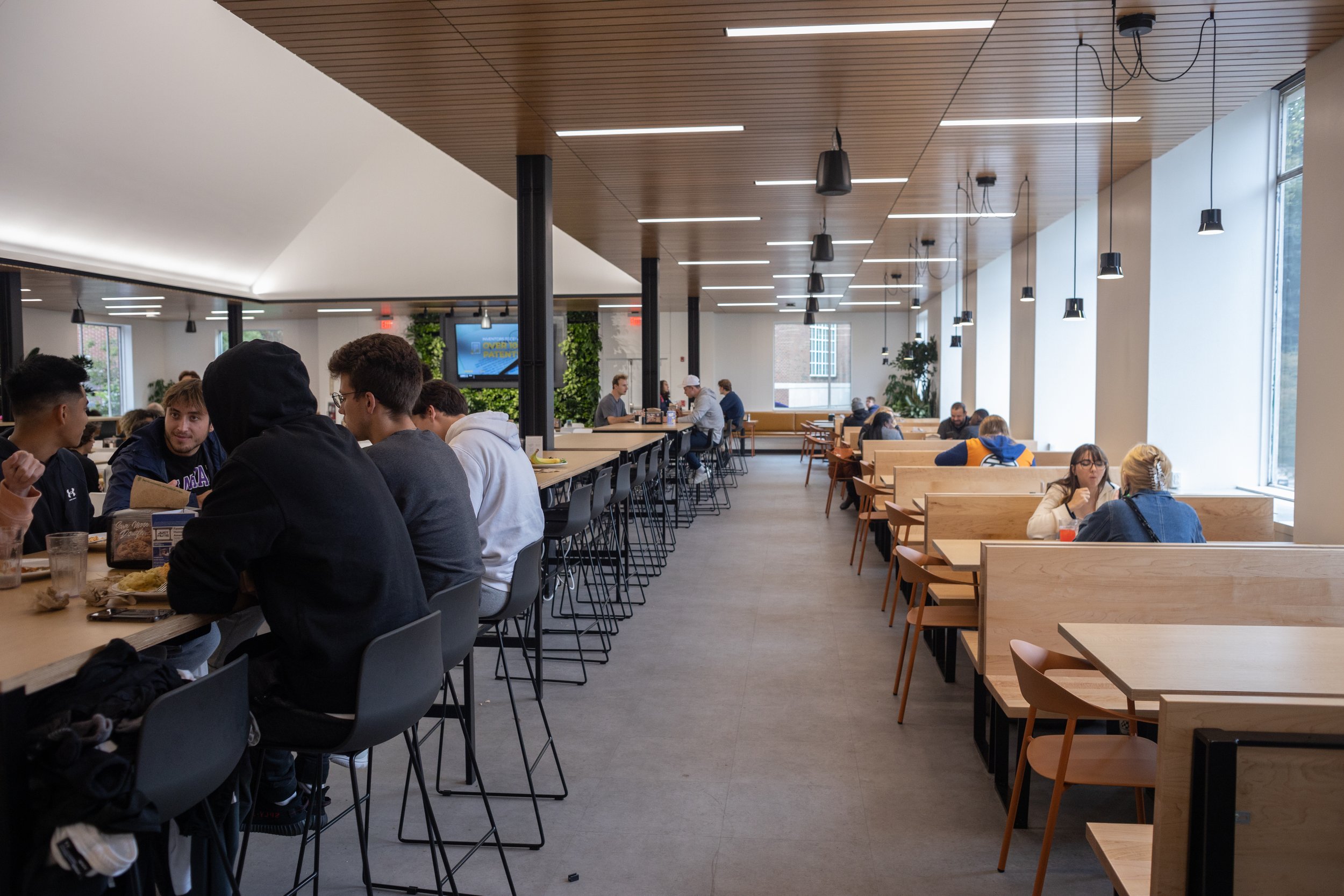How a State Grant Helps Chatham Ease Food Insecurity
Students eat in Anderson Dining Hall. (Kyle Ferreira)
Thanks to a $20,000, one-year grant provided by the Pennsylvania Department of Education, students attending Chatham University in 2024 will have greater access to a variety of foods beyond the dining hall.
Pulse@ChathamU spoke to Miriam “Mim” Seidel, an associate professor in the Falk School of Sustainability and Environment, about the exciting ways this PA Hunger Free Grant will be used.
Providing easy, stigma-free access to shelf-stable items for food-insecure students
An essential needs pantry was opened April 1 in the basement of the Eden Hall Campus Lodge. A similar service has been available at Student Health Services on the Shadyside Campus. Additionally, a fridge and freezer were delivered to EHC in April to keep fresh and frozen foods in stock in the near future. Chatham Eastside has designated a space for its own essential needs pantry, but it has not yet opened.
The Pittsburgh Community Food Bank has also partnered with Chatham to provide free, fresh produce via farmers-market style giveaways at the Shadyside Campus. Recent giveaways have included fresh potatoes, corn on the cob, tomatoes, cabbage, onions, and carrots. Students can expect these giveaways to return on a monthly basis during the fall term, Seidel said.
Increasing access to grocery stores, farmers markets, and community food pantries
A recent survey of Chatham students living near Shadyside indicated they typically shop at Target, Aldi, and Trader Joe’s grocery stores in nearby neighborhoods. The survey also indicated many students were interested in the possibility of using a shuttle to access a Squirrel Hill food pantry. Seidel said her team will investigate whether the creation of such a shuttle is feasible.
Healthy frozen entrees designed by Chatham students
A pilot program known as “Eden Hall Eats” is in the works. This summer, students in culinary-related classes, as well as other students at Eden Hall, will develop recipes for frozen meals using healthy ingredients, which will be prepared and then stored in the Lodge freezer for students to access when the fall term begins.
“In the pantry, we’re using items that you could make a meal out of,” Seidel said. “You’ve got to take that home to your kitchen and make a meal. These frozen items, that’s an entrée itself. It should have a protein portion, a vegetable portion, and a grain portion.” The meals will be designed to be nutritious and easily heated in a microwave.
Better break boxes for students staying on campus between terms
Students staying on campus over fall and winter holiday breaks this year will receive more, healthier items in their “break boxes,” which are filled with food and given out during these periods when the dining hall closes. Students who might need these resources should keep an eye out for communications from Residence Life staff in October, Seidel said.
Collecting and reporting data from students
Seidel said the University is keeping track of all of these goals to report back to the state Department of Education. Feedback from students gathered through University surveys and other outreach will be crucial to determining whether these programs helped decrease food insecurity at Chatham.
“A priority that all colleges should have is that the basic needs of their students are being met,” Seidel said. “Food is a basic need. How can you take advantage of everything that a university education can offer you if you’re hungry or you’re worried about putting food on the table?”

